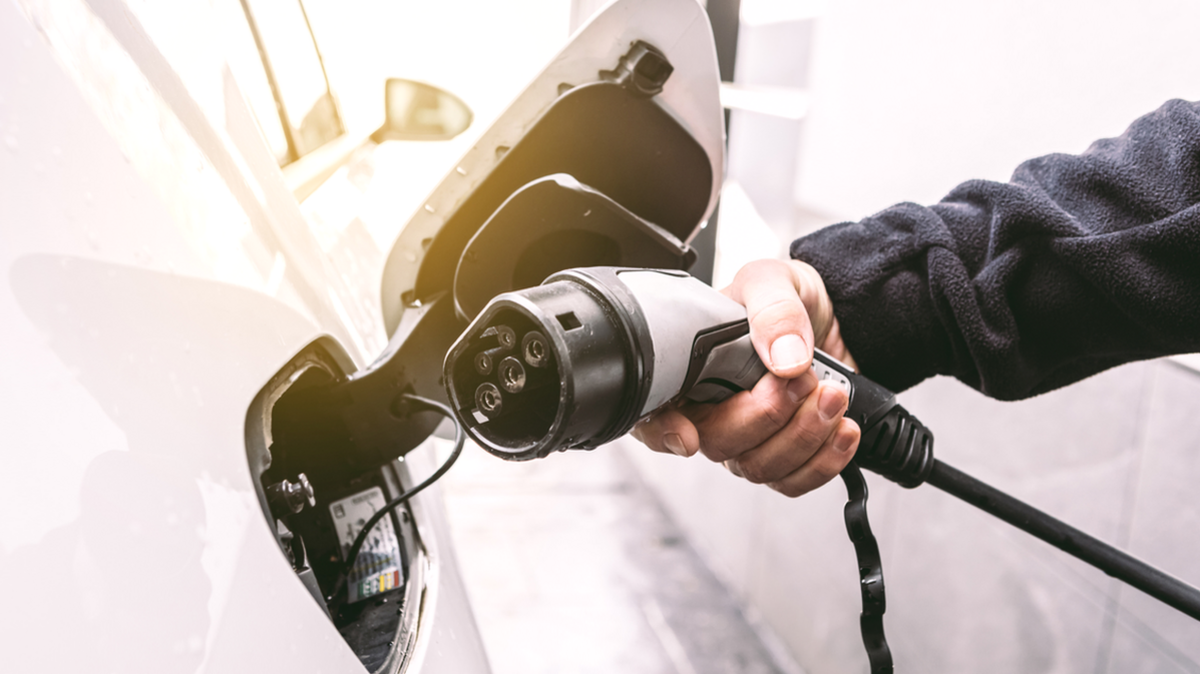Climate change: Carbon-absorbing underwater meadows planted
- Published
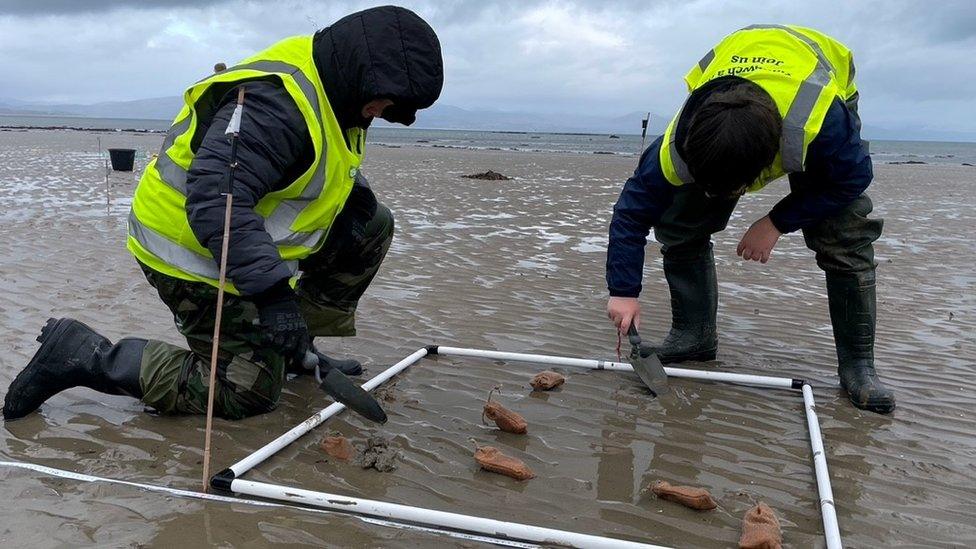
Seagrass Ocean Rescue want to plant five million seagrass seeds on Wales' coastline
Five million seagrass seeds will be planted off Wales' coast to create climate change-fighting underwater meadows.
On Wednesday, 50,000 were laid at Penychain off the Llŷn Peninsula in Gwynedd.
Seagrass Ocean Rescue wants 10 hectares (25 acres) of seagrass meadow by 2026.
WWF Cymru's Rory Francis said Wales had lost 92% of its seagrass over the past 100 years, but it was possible to "recreate, restore and replant" it.
"It could make a real difference in terms of both absorbing carbon and also of restoring really valuable and important marine habitats," said Mr Francis.
He said one hectare could provide a habitat for 80,000 fish.
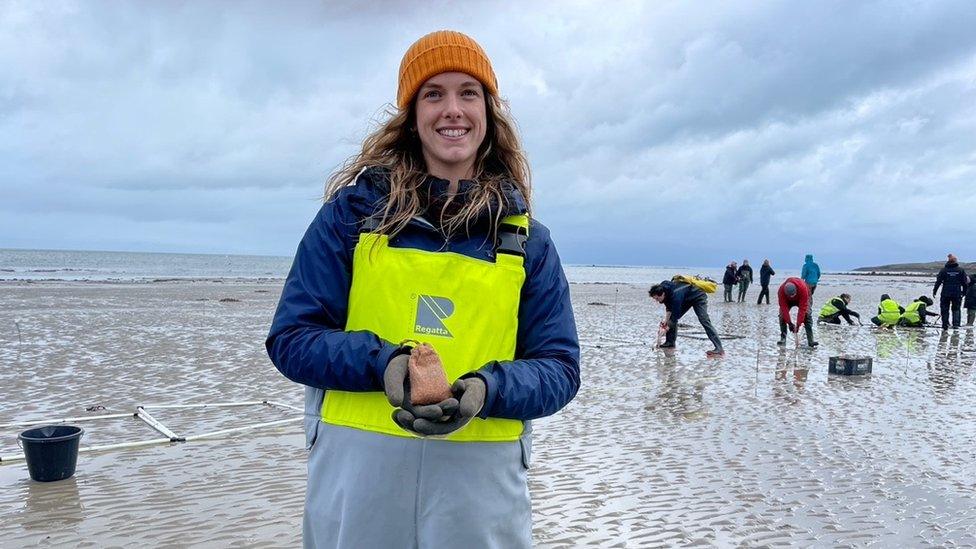
Bethan Thomas and her team planted 50,000 seagrass seeds in one day off the Llŷn Peninsula
Bethan Thomas, of Project Seagrass, said seeds could be planted using hessian bags or by mixing them with mud before injecting them straight into the seabed.
She said: "Today we are going to be planting over 50,000 seeds and over the course of the project we are hoping to plant over five million.
"We have got very short time windows. We have got to wait for the tide to go out. Once the tide has gone out we can lay out our equipment and then we can get our plot set up."
A trial was carried out using the bag planting method in Pembrokeshire to demonstrate that it could be done.
Restoration will continue at selected sites on the coast of Pen Llŷn this spring and at sites on Anglesey next year.
In December the project was granted a marine licence to conduct restoration trials and was awarded a £1m grant from the National Lottery Heritage Fund.
Swansea University's Dr Richard Unsworth said the work was an "important part of the jigsaw of solutions" needed to repair the climate.
"There is no one element that is better than the others but it is a key part of what they call nature-based solutions to climate change," he added.
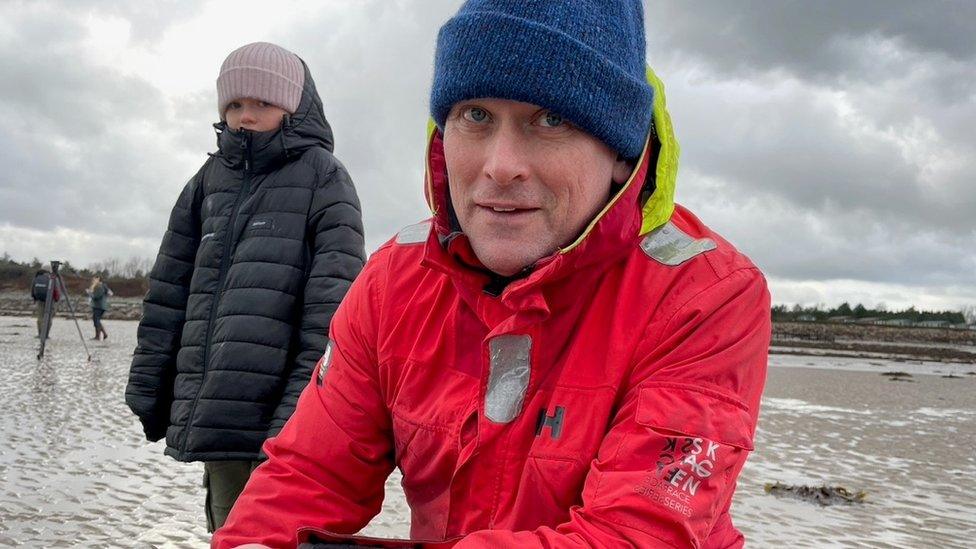
Dr Richard Unsworth said industry had slowly destroyed Wales' seagrass meadows
He said Wales' seagrass meadows had been slowly destroyed over time by industry.
"We have built cities and ports, we have had huge mining projects. We have fundamentally changed the coastal environment and with that we have destroyed life on the sea beds."
The project is being managed by WWF in partnership with the Project Seagrass, Swansea University, North Wales Wildlife Trust and Pen Llŷn a'r Sarnau Special Area of Conservation.
Related topics
- Published17 February 2023
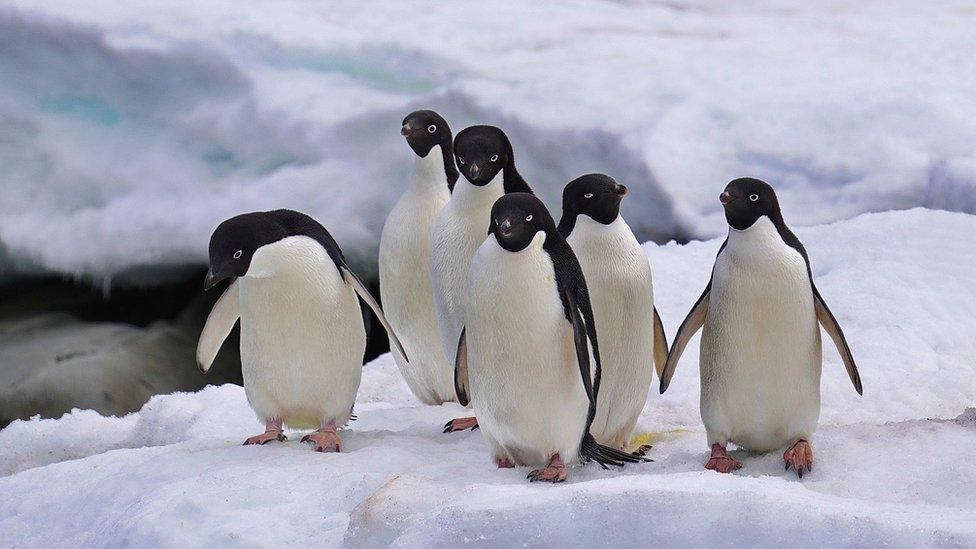
- Published13 February 2023
